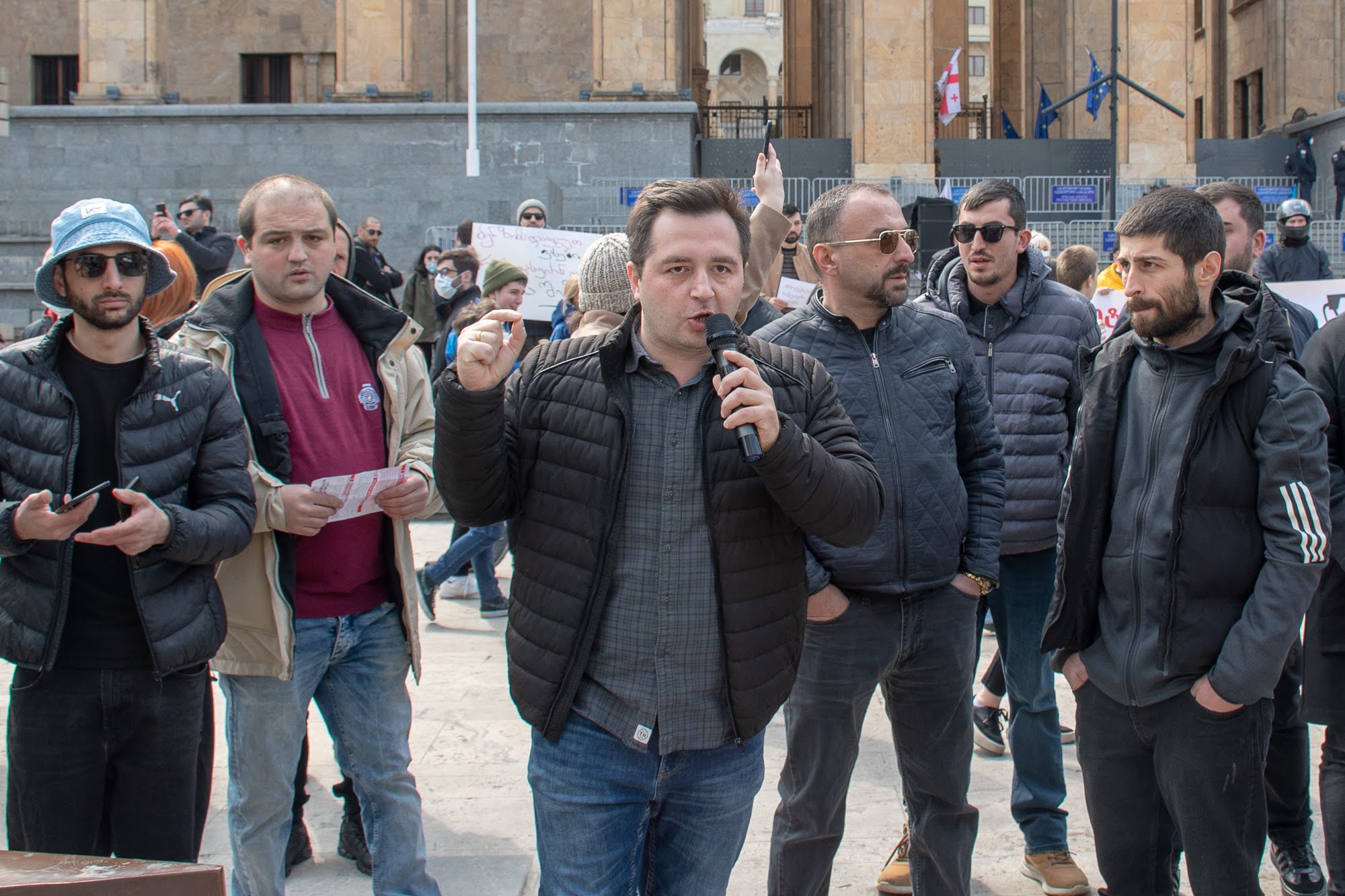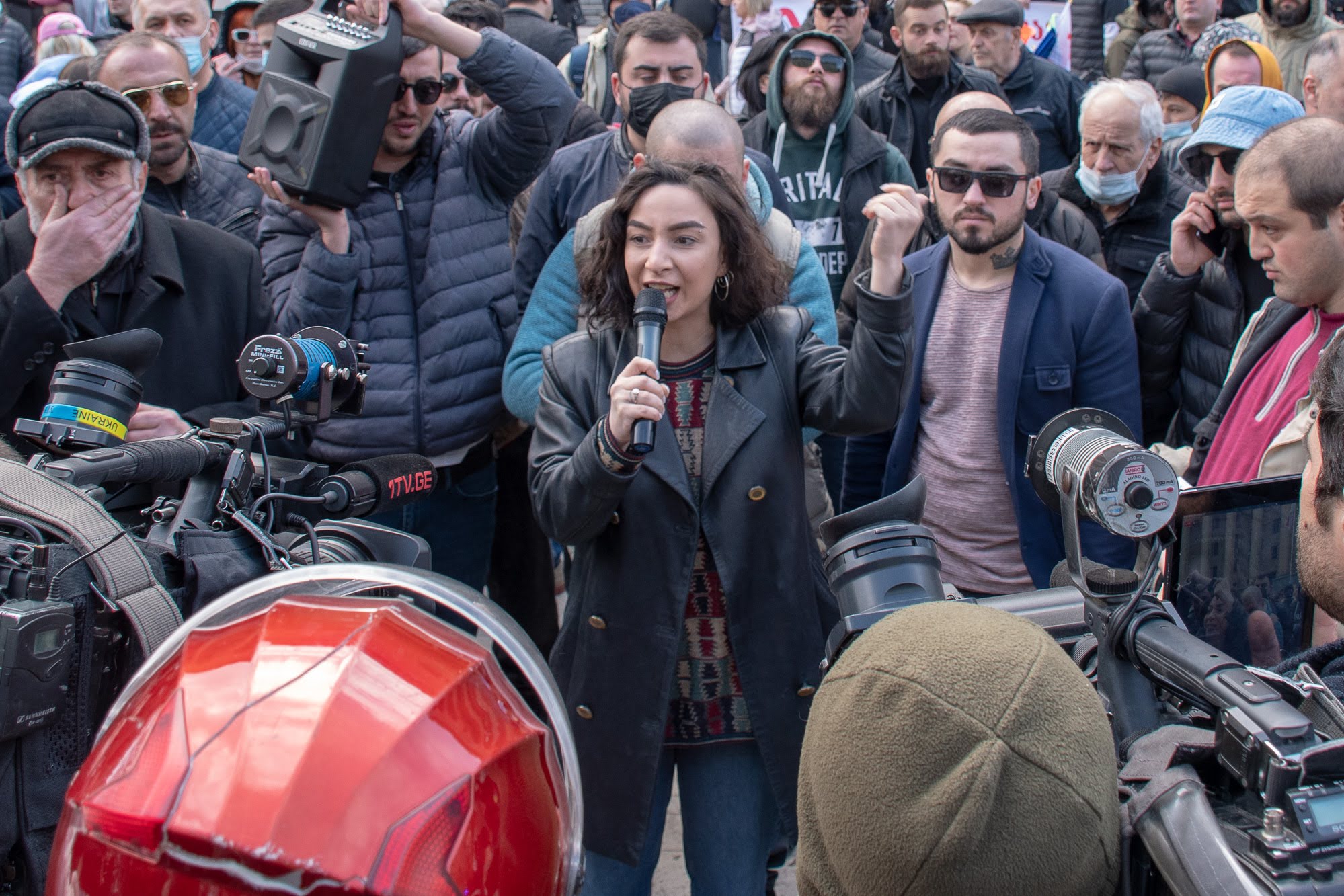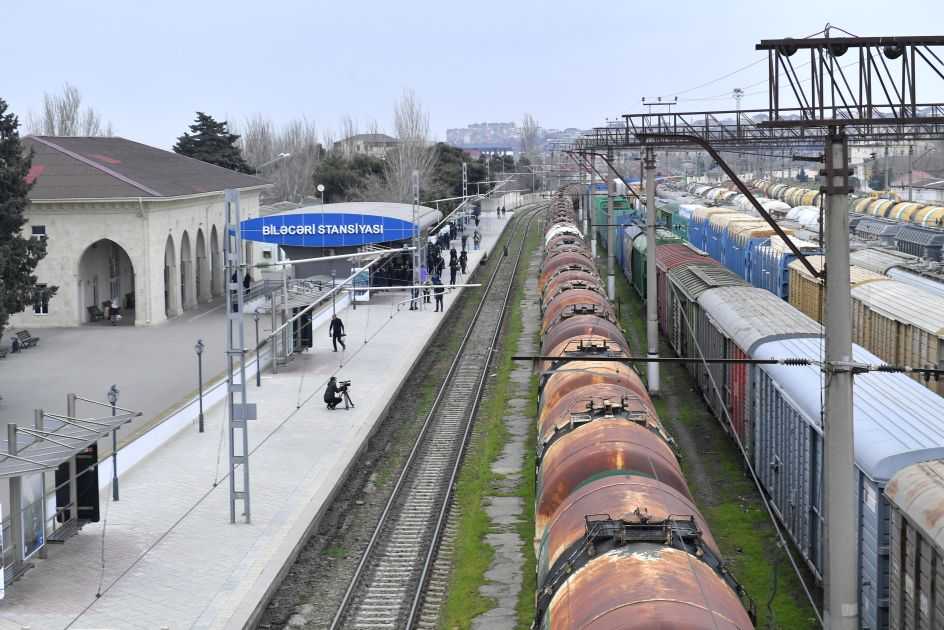
Police have detained 20 people who organised demonstrations paralysing traffic in central Tbilisi over rising fuel prices. Two arrests were also reportedly made during a similar protest in Kutaisi.
On Sunday, demonstrators rallied on foot around Tbilisi’s busiest roundabout — Heroes Square, refusing to unblock it until the authorities provided them with guarantees to curb the skyrocketing fuel prices in the country.
Police used force to clear the motorways after warning demonstrators that their protest would lead to a ‘transport collapse’ in the city.
Protesters in Tbilisi, joined by a large group of on-call food delivery workers on their motorbikes, split into multiple groups to stop traffic on the chain of overpasses around the square, and called on oncoming drivers to join them instead of demanding to pass through.
Though most drivers said they were unhappy with the tactics used by the protestors, most claimed that they agreed with their demands. Displeased drivers engaged in heated arguments with demonstrators several times, while a dispute escalated into a fistfight in at least one instance
The protest titled ‘No to Fuel Prices’ kicked off on 27 March at the First Republic Square, followed by a march of several thousand participants who stopped outside the Parliament building on Rustaveli Avenue.
Otar Abesadze, a Tbilisi-based economics professor and organiser of the protest, demanded ‘radical economic steps’ from the government, including the introduction of floating VAT rates on fuel and the cancellation of excise duties, set at ₾0.38 ($0.13) per litre.
VAT rates on petrol are currently fixed at 18%.
Abesadze claimed that those measures, which he insisted should be accompanied by ‘dismantling artificial monopolies’ on the local fuel market in Georgia, would lead to a ₾0.80–₾0.90 ($0.25–$0.28) price drop per litre.

He called on the government to designate a ‘working group’ to address the ongoing fuel crisis as petrol prices hit record highs in Georgia.
On Sunday, the price of regular-grade petrol reached as high as ₾3.77 ($1.17) per litre in Tbilisi, while diesel surpassed ₾4 ($1.25) per litre.
Fuel prices have soared since 2021, hitting new peaks following the international economic sanctions against Russia, one of the largest global oil producers and exporters, over its invasion of Ukraine. This has forced governments worldwide to consider temporarily reducing VAT rates and excise duties to assist low-income consumers and households.
Veriko Guruli, a small business owner who took part in the protest, complained that she had paid ₾3.64 ($1.13) per litre at a Gulf petrol station in Tbilisi.
OC Media spoke with Guruli after she fended off an unhappy driver demanding access to the overpass connecting Queen Tamar Avenue to Heroes Square.
‘When prices drop, you are going to thank us!’ she shouted at the driver who refused to join the demonstration.

‘We are being told that the economic situation has improved, that the Georgian lari has stabilised, but somehow we’re not feeling that’.
Vaso Urushadze, chair of Hub Georgia, a transport policy thinktank, called on parliament to address the rising fuel prices.
‘The parliament can even start the discussion tomorrow in an expedited manner, and decide to at least halve the excise duties, or announce a moratorium on it’, Urushadze said in his address to the crowds outside Parliament on Sunday.
The demonstration moved to block Hero’s Square after the government ignored calls to address the protesters outside parliament.
Following the arrests, a core group of protesters returned to First Republic Square to wrap up the event.
Later that day, Abesadze congratulated the demonstrators for holding an ‘economic protest in Georgia for the first time in 20 years’, and promised that the ‘No to Fuel Prices’ movement would cover the expected fines for the 20 people arrested.
Smaller groups with the same demands also gathered in Kutaisi, Ozurgeti, and Telavi on Sunday. In Kutaisi, police detained two protesters after drivers blocked the area outside the city hall.









